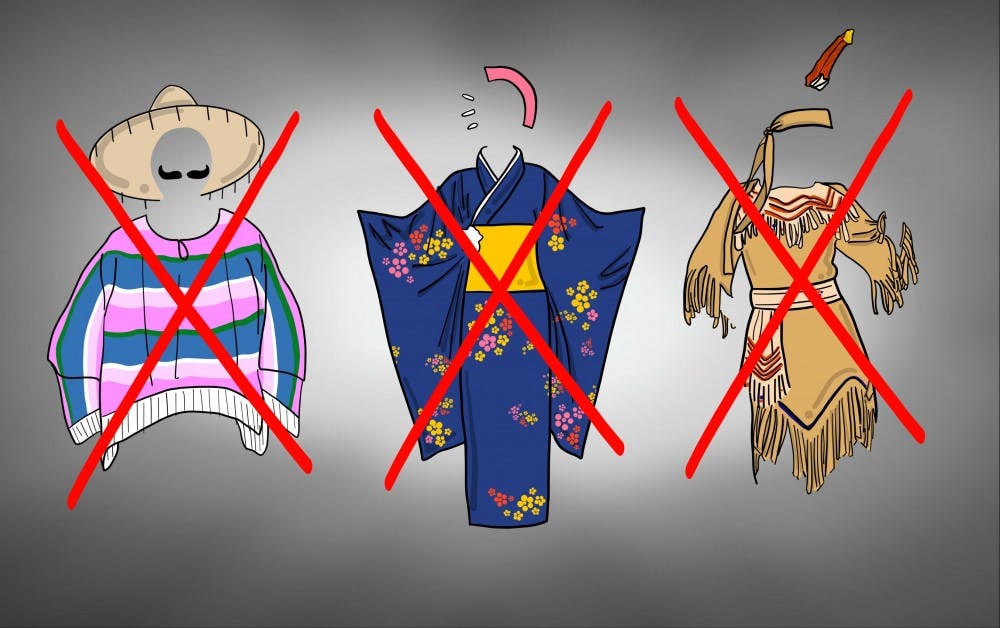As the Halloween season makes another round, the yearly conversation about cultural appropriation and offensive costumes gains momentum.
However, the conversation about offensive and inappropriate costumes should not be subject to just a particular time-period, but should become a continuous year round conversation.
Students should take up responsibility and hold each other accountable for participating in this kind of inappropriate behavior. Additionally, the University should continue providing guidelines and initiating conversations on what is and isn't appropriate.
The discourse surrounding offensive and racist costumes is not a new or even radical topic, but what should be done to remedy the appropriation of cultures through costume?
ASU has had a negative history with offensive costumes on campus, including a history with fraternities participating in the use of racially offensive costumes and, according to an Arizona Republic article, the University has previously taken steps to deter blackface at their sporting events.
Universities across the country, including the University of Florida, have been producing guidelines for students to follow as they celebrate Halloween. A piece released by The Gator Times stated, "if you choose to participate in Halloween activities, we encourage you to think about your choices of costumes and themes. Some Halloween costumes reinforce stereotypes of particular races, genders, cultures or religions."
Additionally, other universities have held seminars where students are allowed to pitch or show their costume idea and get feedback as to whether or not it is inappropriate.
ASU's Project Humanities annually updates its guidelines for students on appropriate Halloween attire, including other events throughout the semester that encourage a conversation on culture and race.
“People tend to unthoughtfully and uncritically just grab those things that they think will get the biggest laughs and attention,” Director of Project Humanities Neal A. Lester said.
However, the University’s authority over students can only extend so far, and students need to take responsibility for what they do in their personal lives.
The lack of formal repercussions should not be the deciding factor as to whether or not students decide to steer clear of costumes that appropriate the culture of marginalized groups, make light of derogatory racial stereotypes or sexualize cultural attire.
Lester mentioned an example being the hyper sexualization of Native American women in costumes contrasted by the the lack of attention surrounding the plights of indigenous women.
Students at ASU should rethink the communities that they surround themselves with if those communities support the outdated and offensive practice of cultural appropriation. Students should also ensure that they are not complicit in this type of behavior by holding their friends, peers and themselves accountable.
“Let’s pause for a moment and realize that if you have a question about this costume it’s probably something you shouldn’t do,” Lester said.
Social progress cannot occur, and racism cannot be fully dismantled if it is not being addressed at every level and if these uncomfortable conversations are not being held.
“Once you see it you can't unsee it. Once you know it you can't unknow it. The issue is, do you care about it?” Lester said.
Reach the columnist at jguzma19@asu.edu or follow @JennyGuzmanAZ on Twitter.
Editor’s note: The opinions presented in this column are the author’s and do not imply any endorsement from The State Press or its editors.
Want to join the conversation? Send an email to opiniondesk.statepress@gmail.com. Keep letters under 500 words and be sure to include your university affiliation. Anonymity will not be granted.
Like The State Press on Facebook and follow @statepress on Twitter.




